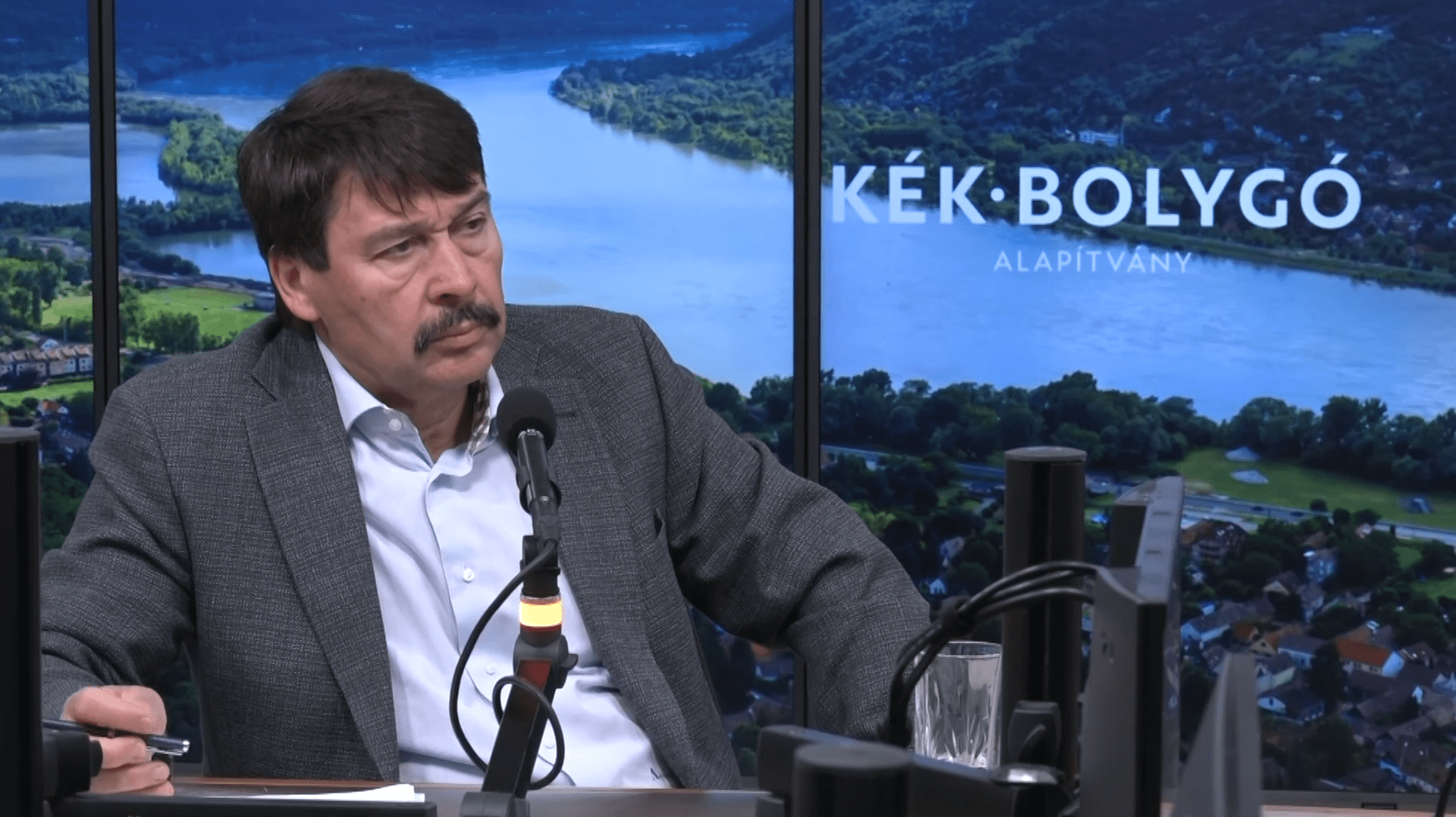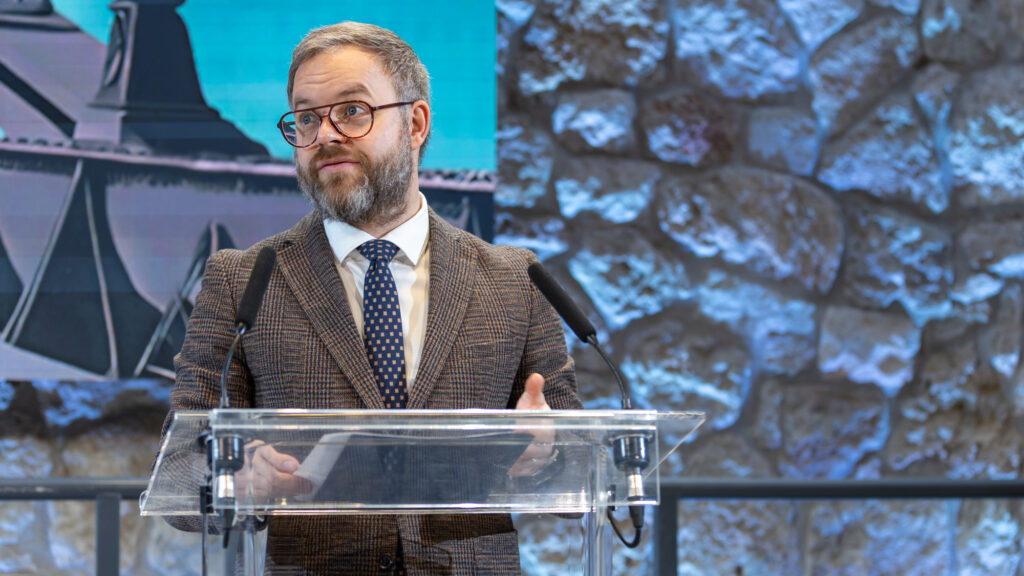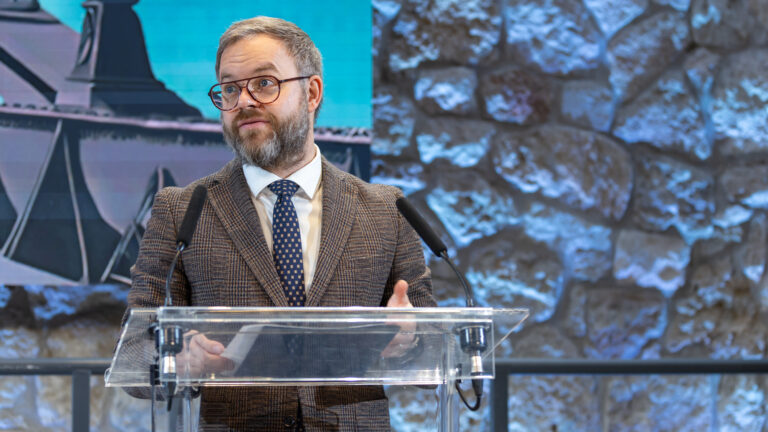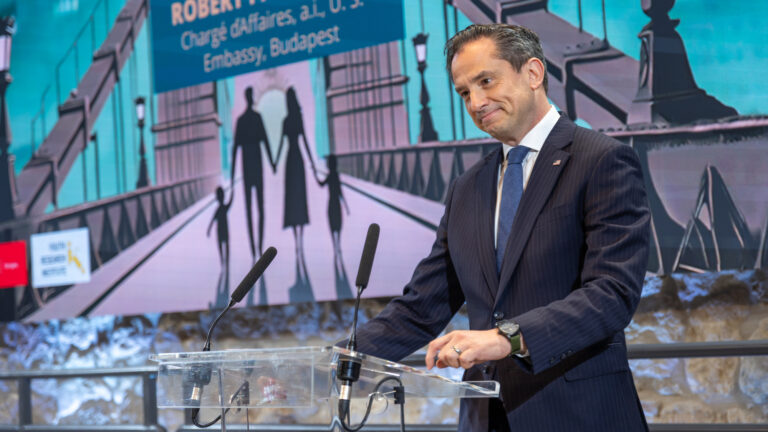Former president of Hungary János Áder spoke about his podcast initiative, the Blue Planet podcast, emphasizing the need to address sustainability and environmental issues without succumbing to climate depression. He highlighted the podcast’s goal of engaging with these challenges and finding solutions. The Blue Planet Climate Protection Foundation’s (BPCPF) chairman discussed reaching the hundredth episode milestone of the programme. In this special episode, János Áder was interviewed by András Huszár, co-founder and director of the Green Policy Center.
The former head of state explained that when launching the podcast in October 2020, his aim was to reach as many people as possible, especially the youth, with discussions on sustainability and solutions. He noted
the youth’s keen interest in the topic and emphasized the podcast’s potential to engage this demographic effectively.
Regarding the thematic selection of each episode, János Áder outlined various factors considered, including relevant world days, holidays, and current events related to sustainability. He highlighted discussions with experts on topics such as battery manufacturing, reviewing efficient and modern production technologies, some of which are also implemented in Hungary. János Áder underscored the environmental regulations based on German solutions, which Hungary tightened on 1 January.
100 – múlt, jelen és jövő a Kék Bolygón
A századik adásához érkezett a Kék Bolygó podcast. Áder János még köztársasági elnökként kezdte el 2020. októberében a beszélgetés-sorozatot. A jubileumi műsorban ezúttal megfordulnak a szerepek: a beszélgetőtárs, Huszár András, a Green Policy Center társalapítója és igazgatója kérdezi a Kék Bolygó Klímavédelmi Alapítvány (KBKA) kuratóriumi elnökét.
Reflecting on the past 99 podcast episodes, the most surprising information for Áder pertained to pathogens. He stressed the importance of accelerating research on understanding pathogens due to the potential risks posed by mutations and the emergence of dangerous strains. He emphasized the necessity of psychological, healthcare, and political preparedness for potential future pandemics, the severity of which cannot be predicted.
Áder expressed sadness over the increasing carbon dioxide emissions annually since the adoption of the Paris Climate Agreement in 2015. He lamented that despite awareness, knowledge, and political intentions, humanity has failed to meet collective goals, continuing to warm the planet and disrupt its equilibrium.
However, he found hope in the array of sustainable solutions offered by numerous Hungarian businesses, particularly those showcased at Planet Budapest events. He highlighted innovations in food waste processing and celebrated Hungary’s achievements in maintaining river water quality and advancing municipal wastewater treatment.
He stressed the need for proactive measures to protect arable land, attributing soil quality degradation to irresponsible farming practices. Similarly, he addressed air quality concerns, advocating for individual, municipal, and governmental actions to tackle the issue.
Proudly, Áder lauded Hungary’s forest management, which contributes to both soil and air quality improvements. Despite global deforestation trends, Hungary has doubled its forested area over the past century, a remarkable achievement.
Áder also outlined the Blue Planet Foundation’s key tasks, including fostering awareness and education on sustainability. Initiatives range from storytelling to pre-schoolers about water and soil protection to providing educational materials for high school students.
This year marks the introduction of sustainability as a freely selectable subject for the national matriculation exam.
The foundation supports sustainability-themed weeks, nature film festivals, and sustainability expos. Looking ahead, they plan a significant presence at the World Science Forum to discuss measuring sustainability transitions, a topic Áder believes will remain pertinent in the coming years.
Responding to a question, Áder mentioned that the 101st podcast episode will be recorded at the Sopron Fest on 15 May, with generational researcher Krisztián Steigervald as the guest.
Related articles:
Sources: Hungarian Conservative/Blue Planet Podcast








